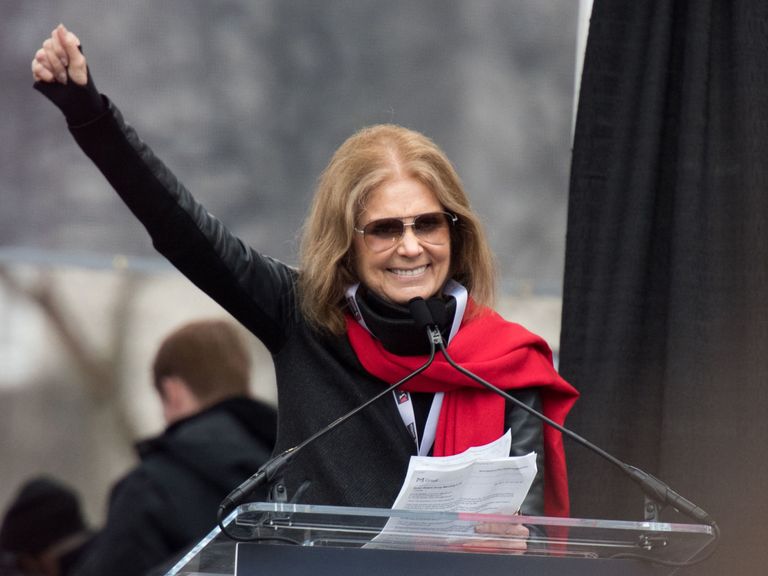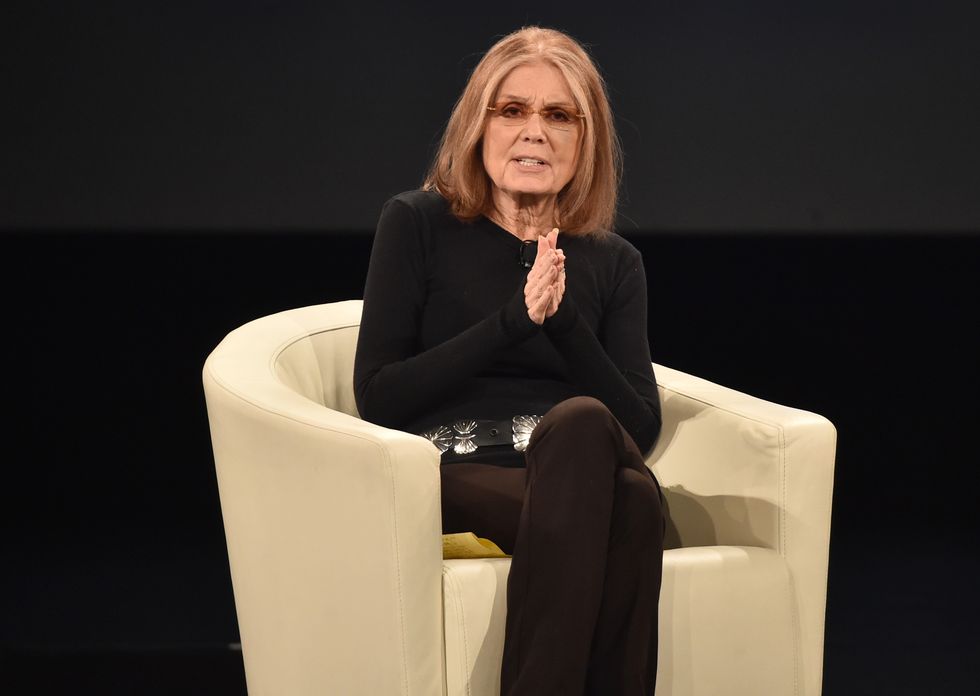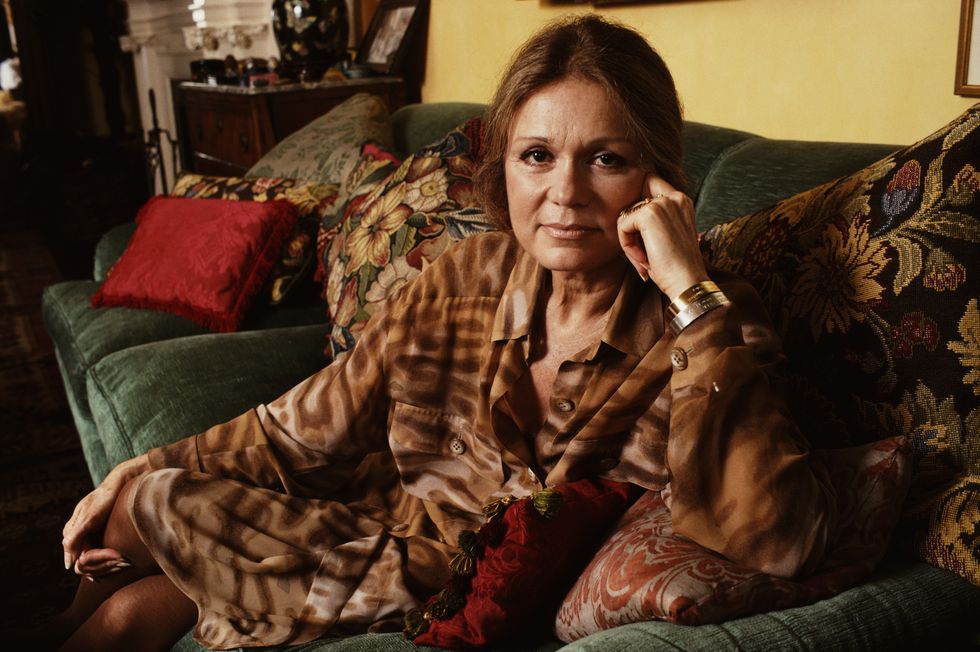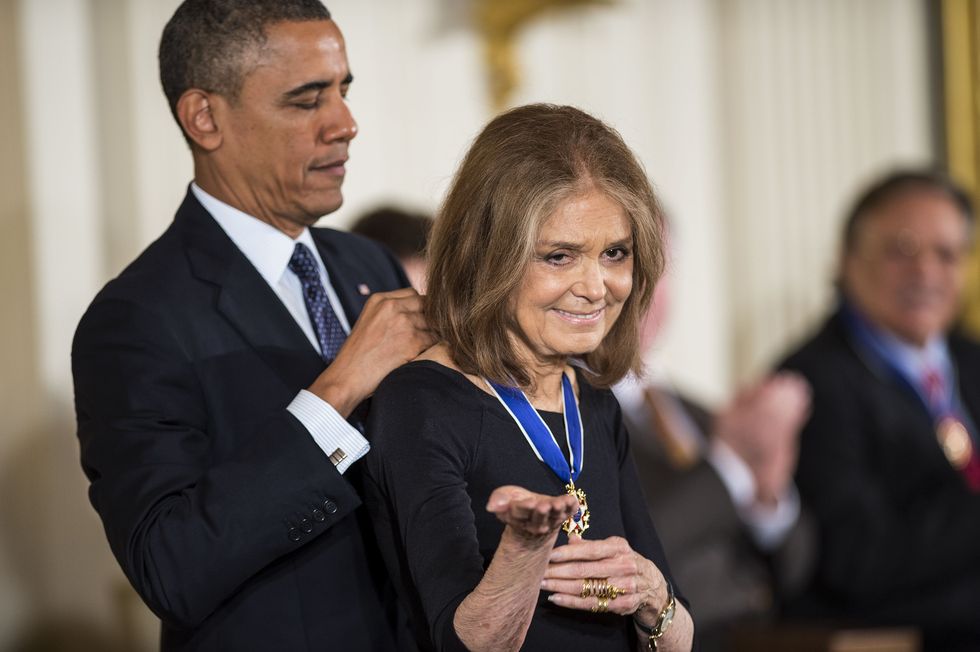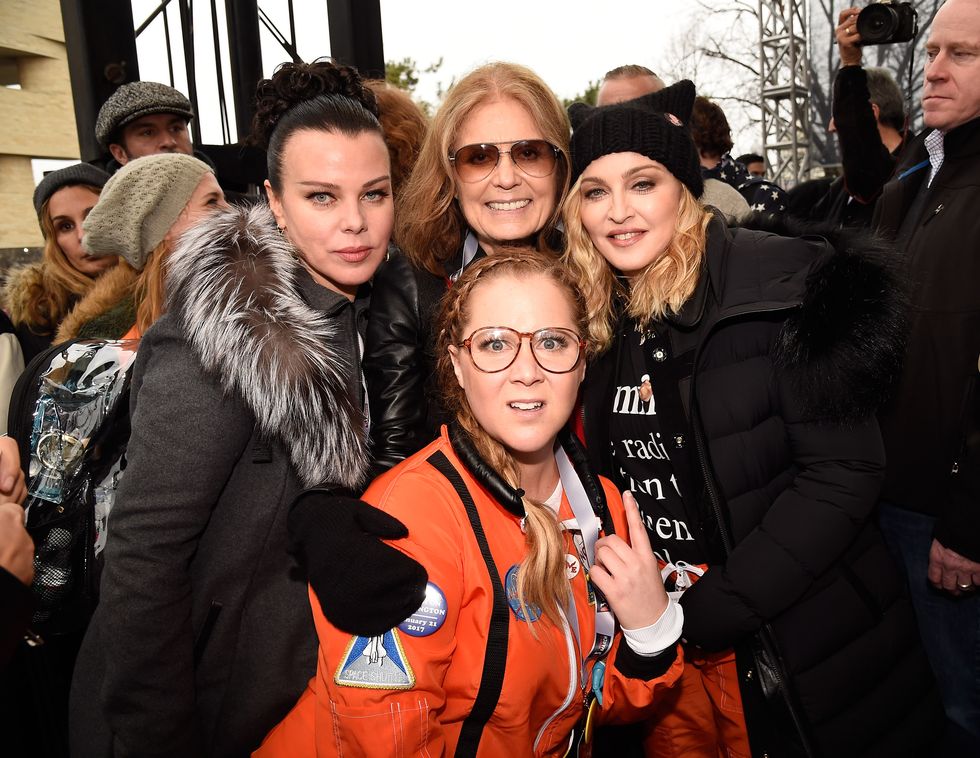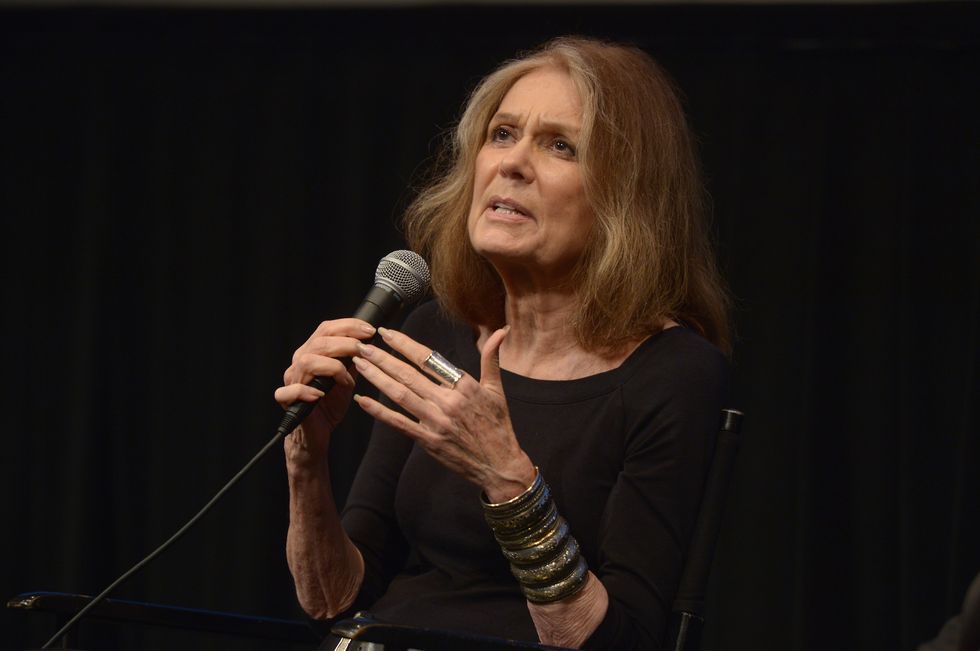In January this year, five million women of all ages, races and nationalities came together to protest for gender equality. They marched on the same day in a staggering 673 locations across the globe.
In Washington, D.C., where the idea originated, a crowd of one million women took to the streets, and looking out over them, smiling, was the legendary feminist campaigner Gloria Steinem. Pointing out how the size of the march outnumbered attendance at President Donald Trump's inauguration, she fearlessly went for the jugular: his pride.
When we talk on the phone a week later, Gloria is feeling just as bold and optimistic – despite the seismic set backs for women's rights that came under Trump's first week of presidency. At 82-years-old – 'I know, I'm shocked', she laughs – it's clear the journalist, author and icon of the women's liberation movement's strong will hasn't been weakened, after tirelessly fighting for gender equality for more than 50 years.
Her 1969 essay for New York Magazine, After Black Power, Women's Liberation, famously heralded the second wave of feminism, and her magazine Ms. has served as something of a feminist bible.
Today, she still dedicates her time to making sure women everywhere keep their eyes on the prize, passionately co-running a series of organisations such as the Women's Media Centre, which advocates for more women in the media, and Donor Direct Action, which links frontline women activists to funding. As if that weren't enough, she's also just launched a TV series investigating gender equality around the globe. Named WOMAN, it's an eight-part documentary debuting on VICELAND this month.
In conversation, Gloria is a little gruff to begin with. But that might be because I've just interrupted her work; she's writing an article about the March for Life rally, an anti-abortion protest that's been running in the U.S. for over 40 years.
'I am working on something to put online to say this is not a march for foetal life it's a march for women's death,' she tells me.
'If you outlaw abortion or make it financially unavailable, it doesn't reduce the number of women who need abortions – which, in this country, is about one in three – it just increases the number of women who are injured and die from forced pregnancies and births.'
Just days before, Donald Trump has signed the global gag rule, a law which withdraws funding from health organisations that support or even discuss abortion.
'It is tragic and outrageous and morally wrong,' she says, sighing. 'It could not possibly be more destructive.'
The bill was signed by Ronald Reagan and George W. Bush too, but Trump's gag rule is more extensive and affects more medical programmes, Gloria reminds us, making it much more lethal.
It's easy to see how, in such a climate, a project like WOMAN would appeal to Gloria.
In each episode, a different female journalist heads to an area of the world where women are facing threat. The first episode meets women fighting in FARC, a violent guerrilla army in Colombia (Gloria's favourite episode – 'What happens after the revolution? When they're told to go home?'), while later episodes investigate femicide in El Salvador, and the number of young mothers imprisoned in the U.S.A.
The project was cooked up at a Google Camp in Sicily, when Gloria met VICE CEO Shane Smith, and the two discussed the fact that, partially due to gender selective abortions and violence against women, there are now – for the first time in history – less women on earth than men.
For Gloria, doing a show that shed a light on the plight of women was a no brainer: 'We're half the human race – the fate of women determines the environment, democracy... everything.'
As for the format, she explains the intention was to tell human stories in the most intimate way possible. 'Our brains are organised on narrative, we've been sitting around campfires for thousands of years. We don't respond to statistics or generalities, we respond to personal contact, so we looked at ways of giving the viewer the same experience they would have if they were in that country,' she says.
I wondered if anything unearthed in the show surprise her? 'Not really,' she laughs, lightening slightly. 'I've been doing this a long time.'
WOMAN hones in the struggle of female lives that are lived somewhat off the grid – with no access to social media, given that many of its subjects are in the military, in jail or in a part of world where access is difficult. 'We thought very much about that,' Gloria explains. 'There are nearly 300 million more women who are illiterate than men in the world and women are less likely to have computers or internet connectivity.'
For the same reason, Gloria was pleased with the physical expression of solidarity seen at the Women's Marches. 'Putting our bodies where our hopes were, I think that seemed to be more unifying than being online,' she reflects.
'People were marching in Nairobi and in villages in Kenya. It was a good use of the web, because that's how the word spread, but what were were doing was available for everyone, and if it wasn't, we also had a one-minute silence for women everywhere to envisage equality.'
With another global protest – a women's strike – planned for 8 March, Gloria believes we've had a wake-up call from the recent political backlash at the 2016 presidential election. She describes Trump's election as a 'coup', but it's not just about Trump.
'There are various leaders who are right wing, antifeminist and anti-equality around the world who've put an end to the idea that there is a post-racist or post-feminist era,' she says. 'They've unified and electrified people in a new way.'
In that sense, Gloria thinks this is a moment for positivity. 'We have come a long distance from the idea that women's inferior position was due to biology or god or fate or some other inevitable force, we know that it's unjust and it can change,' she says, looking back on what she's learned from 50 years of feminist protest from the centre of things. 'We know that we are not crazy we know the system is crazy – a very important realisation.'
And what of her personal learnings at the age of 82?
'WelI, I no long have bag lady fantasy,' she says, suddenly sounding more vulnerable. 'I always imagined until I was well into my forties that I would end up on the street homeless because even though I was supporting myself as a writer I didn't think it could continue, I didn't have faith in my own abilities to support myself.' How did she overcome it, I ask? She laughs. 'By imagining I would organise the other bag ladies.'
I tell Gloria I'm surprised to hear that her confidence ever wavers. 'Are you kidding me?' she shoots back. 'I would not want to oversell my organisation in life. I tend to respond to emergencies and plan poorly. I'm a journalist, I work to deadlines.'
Being in the public eye and involved in various organisations probably helps keep the pressure on, I suggest. She agrees. 'I have the company of women and I have rewards for being active, but my heroes are the women who have neither and do it anyway,' she notes.
As our call comes to an end, I ask what would her advice be for other women on International Women's Day?
'I would just say to individual women trust your own sense of what needs to be done, reach out for support from other women and men. A beginning of a movement is a chosen family, it grows and grows. Laugh at each other's jokes, support one other, trust one other.'
She concludes by quoting that other famous face of 1960s protest, Bob Dylan. 'The answer is blowing in the wind... it's not inevitable that we will succeed, it's really about what we do every day.'
'WOMAN with Gloria Steinem' is a new VICELAND documentary series, which begins on Wednesday 8th March at 9pm. VICELAND is available on SKY channel 153 and NOW TV.
